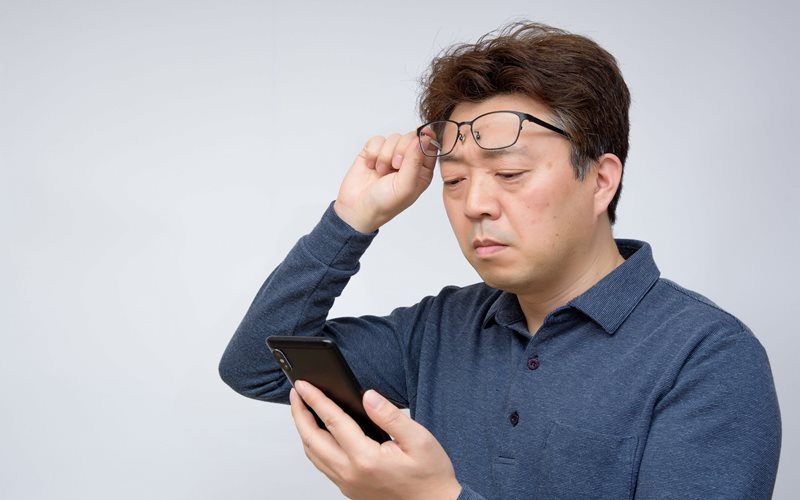It’s not uncommon for new glasses wearers to experience dizziness, and this can happen to anyone. Today, let’s explore how to address this issue and adjust to your new glasses!
1 Reasons for Dizziness with New Glasses

Reasons for Dizziness with New Glasses
It’s normal to experience headaches, dizziness, and mild fatigue when wearing new glasses. This happens because your eyes are adjusting to the new prescription, and as a result, they work harder, leading to these symptoms. Don’t worry, as this is perfectly normal!
Typically, after trying on new glasses, eye doctors will ask patients to wear them and move around for 15-20 minutes to get accustomed to the new lenses and identify any unusual symptoms that may require adjustments.
Additionally, if you consistently experience dizziness or vertigo while wearing your new glasses, it could be due to the following issues:
-
Incorrect prescription: If your glasses don’t have the right prescription, your eyes will have to work harder to see clearly, leading to nerve strain.
-
Improper frame size: Wearing glasses with a frame that is too wide or too tight can cause discomfort, dizziness, and sometimes vertigo.
-
Low-quality lenses: Using low-quality lenses can negatively impact your experience. Wearing lenses that are not of good quality may result in frequent vertigo, headaches, and discomfort.
2 Is It Concerning to Feel Dizziness with New Glasses?

Is Dizziness with New Glasses a Concern?
Dizziness when wearing new glasses typically lasts for only 1-2 days as your eyes adjust to the new prescription. However, if you continue to experience dizziness or vertigo after this period, it could lead to the following issues:
-
Rapid increase in myopia: Wearing incorrect glasses can cause your eyes to work much harder. If this persists, your myopia may increase rapidly, and in severe cases, it could lead to permanent vision loss.
-
Amblyopia: Prolonged dizziness and headaches can affect your vision and lead to amblyopia, causing blurred vision.
-
Impact on daily life: Constant eye fatigue and adjustment can make your daily tasks and activities challenging and bothersome. If this continues, it may also lead to serious neurological issues.
3 What to Do If You Feel Dizziness with New Glasses
 What to Do If You Experience Dizziness with New Glasses
What to Do If You Experience Dizziness with New GlassesConsult a Reputable Eye Specialist
Visiting a reputable eye specialist can help ensure you get the right prescription and avoid low-quality glasses. Additionally, they can provide quick support if you experience any unusual symptoms with your new glasses.
Regular Eye Examinations
It’s recommended to get an eye examination every 3-6 months to monitor your eye health and ensure your prescription is up to date. Regular check-ups are beneficial for maintaining and improving eye health.
We hope that through this article, you now understand the reasons behind dizziness when wearing new glasses and how to address this issue. Remember to get regular eye examinations and choose a reputable optician to maintain healthy vision!
Source: matkinhshady.com
Shop for fresh and delicious fruits at our store:
Frequently asked questions
It is normal to experience headaches, dizziness, and mild fatigue when adjusting to new glasses due to your eyes getting accustomed to the new prescription. This causes your eyes to work harder, leading to these symptoms. It typically lasts for 1-2 days.
There are a few potential issues: an incorrect prescription, an improper frame size, or low-quality lenses. An incorrect prescription can strain your nerves as your eyes work harder to see clearly. Wearing glasses with the wrong frame size can cause discomfort and sometimes vertigo, while low-quality lenses can result in frequent vertigo, headaches, and discomfort.
While it is common and typically not a major issue, prolonged dizziness with new glasses can lead to rapid myopia increase, amblyopia (blurred vision), and impact your daily life with constant eye fatigue. If dizziness persists beyond 1-2 days, consult an eye specialist.
Consult a reputable eye specialist to ensure you have the correct prescription and rule out any underlying issues. Get regular eye examinations every 3-6 months to monitor your eye health and keep your prescription up-to-date. Choose a reputable optician for your eyewear needs.
































